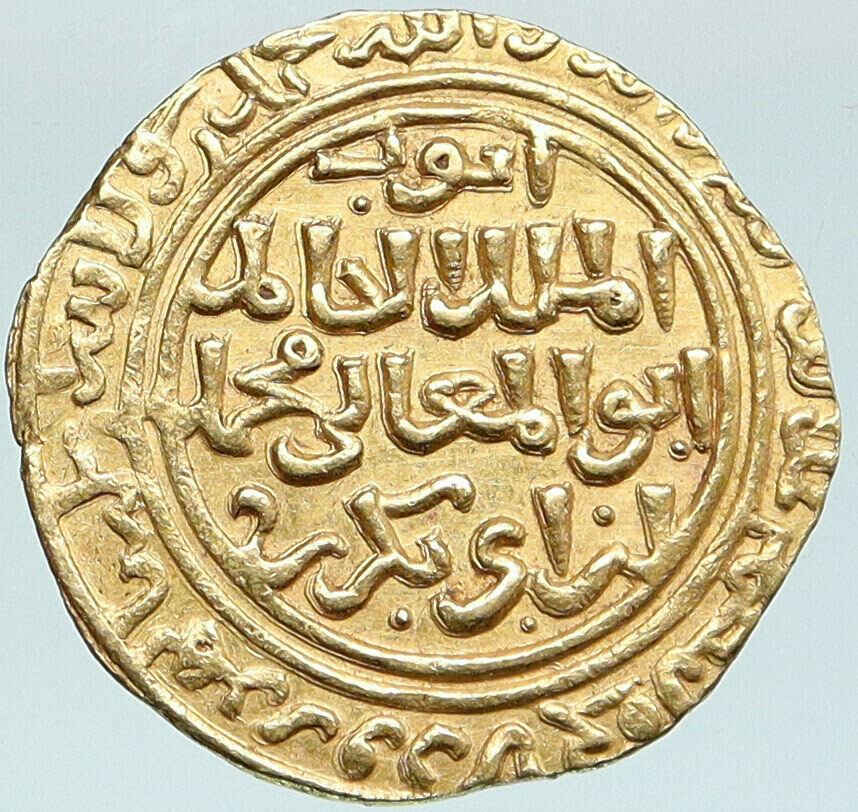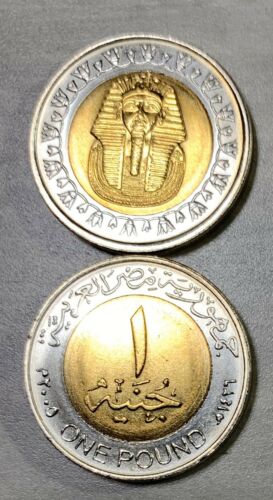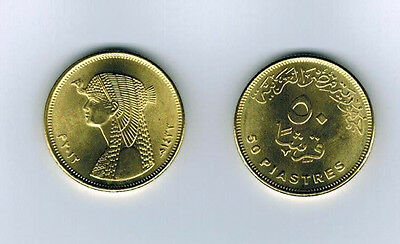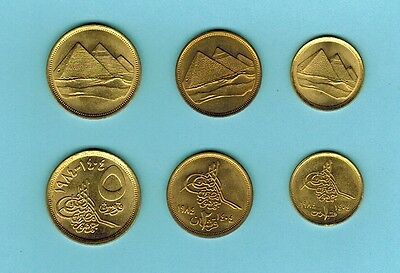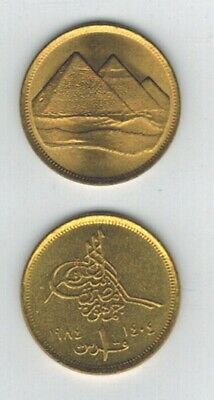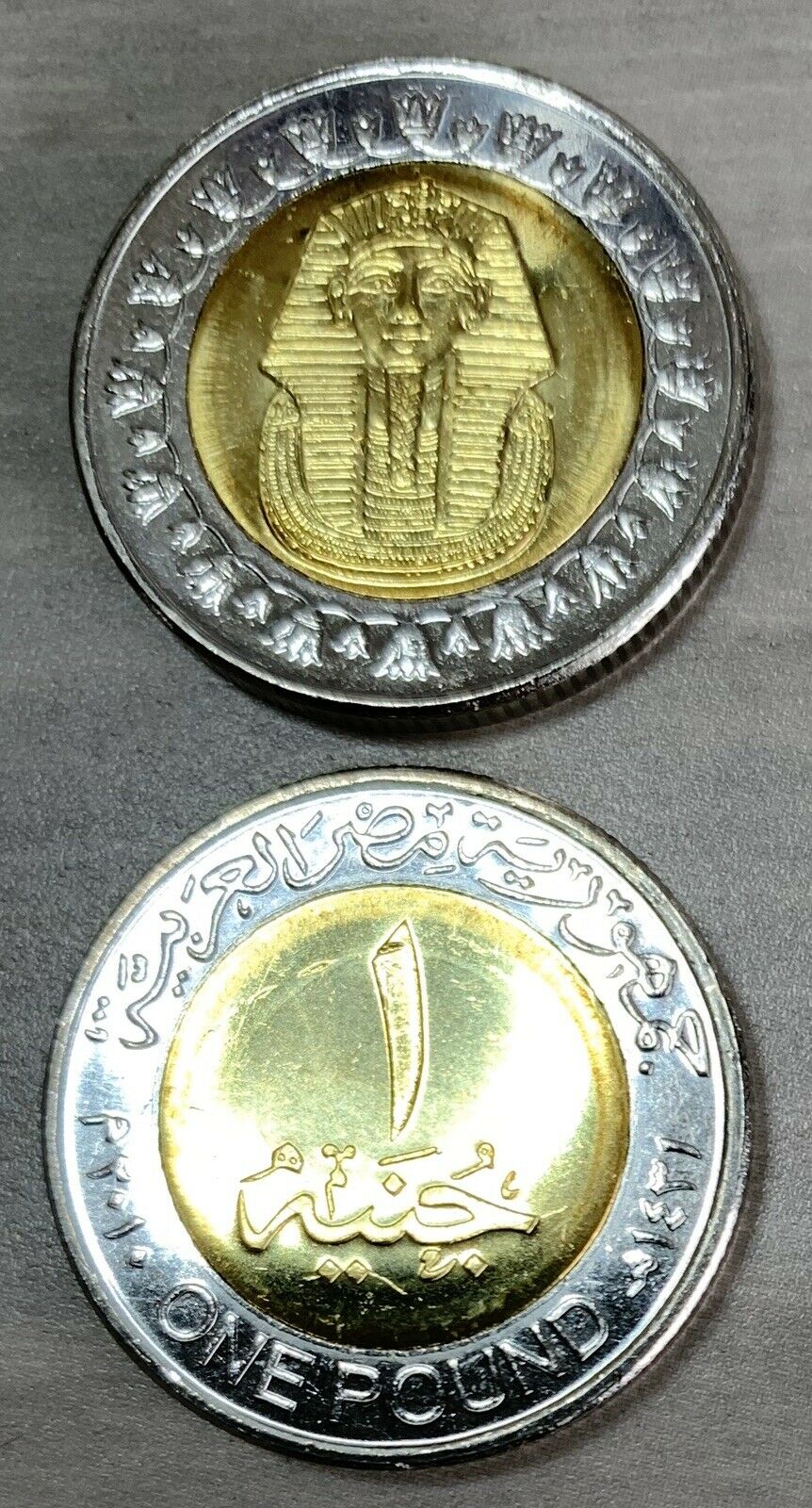-40%
AH627 1229/30 EGYPT Kamil Muhammad I ALEXANDRIA ANTIQUE Gold Dinar Coin i88119
$ 1401.12
- Description
- Size Guide
Description
Item:i88119
Authentic Coin of:
Egypt
under Al-Kamil Muhammad I - Sultan: 1218 - 6 March 1238
AH 627 (AD 1229/30)
Gold Dinar 20mm (
3.61
grams)
Reference: Bal I# 396
Naskh script, encircled twice.
Naskh script, encircled twice.
You are bidding on the exact item pictured, provided with a Certificate of Authenticity and Lifetime Guarantee of Authenticity.
Al-Kamil
(Arabic: الكامل) (full name:
al-Malik al-Kamil Naser ad-Din Abu al-Ma'ali Muhammad
) (c. 1177 – 6 March 1238) was a Muslim ruler and the fourth Ayyubid sultan of Egypt. During his tenure as sultan, the Ayyubids defeated the Fifth Crusade. He was known to the Frankish crusaders as
Meledin
, a name by which he is still referred to in some older western sources. As a result of the Sixth Crusade, he ceded Jerusalem to the Christians and is known to have met with Saint Francis.
Jazira campaign
Al-Kamil was the son of sultan al-Adil ("Saphadin"), a brother of Saladin. Al-Kamil's father was laying siege to the city of Mardin (in modern-day Turkey) in 1199 when he was called away urgently to deal with a security threat in Damascus. Al-Adil left al-Kamil to command the forces around Mardin continuing the siege. Taking advantage of the Sultan's absence, the combined forces of Mosul, Sinjar and Jazirat ibn Umar appeared at Mardin when it was on the point of surrender, and drew Al-Kamil into battle. He was badly defeated and retreated to Mayyafariqin. However dissent and weakness among his opponents meant that Al-Kamil was able to secure Ayyubid rule in the Jazira Region by taking Harran (in modern-day Turkey).
Viceroy of Egypt
In 1200, after proclaiming himself Sultan, Al-Adil invited Al-Kamil to come from the Eastern Territories to join him in Egypt as his viceroy (na'ib) in that country. Al-Adil's second son, Al-Mu'azzam Isa, had already been made prince of Damascus in 1198. It appears that Al-Adil allowed Al-Kamil a fairly high degree of authority, since he oversaw much of the work on the Cairo Citadel, issued decrees in his own name, and even managed to persuade his father to dismiss the powerful minister Ibn Shukr. Al-Kamil remained viceroy until his father's death in 1218 when he became Sultan himself.
The Fifth Crusade
In 1218 when Al-Adil died, the Ayyubid domains were divided into three parts, with Al-Kamil ruling Egypt, his brother Al-Muazzam Isa ruling in Palestine and Transjordan, and a third brother, Al-Ashraf Musa in Syria and the Jazira. Nominally the other two recognised Al-Kamil's supremacy as Sultan. Unusually for an Ayyubid succession, there was no obvious dissent or rivalry between the brothers at this point, partly because just before Al-Adil's death, Egypt had been attacked by the forces of the Fifth Crusade.
Al-Kamil took command of the forces which defended Damietta against the Crusaders. In 1219 he was almost overthrown by a conspiracy led by the amir Imad ad-Din ibn al-Mashtub, commander of the Hakkari Kurdish regiment, to replace him with his younger and more pliant brother al-Faiz Ibrahim. Alerted to the conspiracy, Al-Kamil had to flee the camp to safety and in the ensuing confusion the Crusaders were able to tighten their grip on Damietta. Al-Kamil considered fleeing to Yemen, which was ruled by his son Al-Mas'ud, but the timely arrival of his brother Al-Muazzam from Syria with reinforcements brought the conspiracy to a swift end.
Al-Kamil made many offers of peace to the Crusaders, all of which were rejected, due to the influence of the papal legate Pelagius. He offered to return Jerusalem and rebuild its walls (which his brother had torn down earlier in the year), and to return the True Cross (which he probably did not have). At one point he even negotiated with Francis of Assisi, who had accompanied the crusade, and who apparently tried to convert the sultan.
Due to famine and disease after the Nile failed to flood, al-Kamil could not defend Damietta and it was captured in November 1219. The sultan withdrew to al-Mansourah, a fortress further up the Nile. After this there was little action until 1221, when al-Kamil offered peace again, proposing to surrender the entire territory of the Kingdom of Jerusalem, except Transjordan, in return for the Crusaders evacuating Egypt but was again refused. The Crusaders marched out towards Cairo, but al-Kamil simply opened the dams and allowed the Nile to flood, and finally the Crusaders accepted an eight-year peace. He retook Damietta in September.
In the following years there was a power struggle with his brother al-Mu'azzam, and al-Kamil was willing to accept a peace with emperor and King of Sicily Frederick II, who was planning the Sixth Crusade. Al-Mu'azzam died in 1227, eliminating the need for a peace, but Frederick had already arrived in Palestine. After al-Mu'azzam's death, al-Kamil and his other brother al-Ashraf negotiated a treaty, giving all of Palestine (including Transjordan) to al-Kamil and Syria to al-Ashraf. In February 1229 al-Kamil negotiated a ten-year peace with Frederick II and returned Jerusalem and other holy sites to the Crusader kingdom. The treaty of 1229 is unique in the history of the Crusades. By diplomacy alone and without major military confrontation, Jerusalem, Bethlehem, and a corridor running to the sea were ceded to the kingdom of Jerusalem. Exception was made for the Temple area, the Dome of the Rock, and the Aqsa Mosque, which the Muslims retained. Moreover, all current Muslim residents of the city would retain their homes and property. They would also have their own city officials to administer a separate justice system and safeguard their religious interests. The walls of Jerusalem, which had been destroyed, were rebuilt, and the peace was to last for 10 years. However although there was peace with the Crusaders, al-Kamil had to contend with the Seljuks and the Khwarezmians before he died in 1238.
Egypt
, officially the
Arab Republic of Egypt
, is a country spanning the northeast corner of Africa and southwest corner of Asia by a land bridge formed by the Sinai Peninsula. Egypt is a Mediterranean country bordered by the Gaza Strip and Israel to the northeast, the Gulf of Aqaba to the east, the Red Sea to the east and south, Sudan to the south, and Libya to the west. Across the Gulf of Aqaba lies Jordan, across the Red Sea lies Saudi Arabia, and across the Mediterranean lie Greece, Turkey and Cyprus, although none share a land border with Egypt.
Egypt has one of the longest histories of any country, tracing its heritage back to the 6th-4th millennia BCE. Considered a cradle of civilisation, Ancient Egypt saw some of the earliest developments of writing, agriculture, urbanisation, organised religion and central government. Iconic monuments such as the Giza Necropolis and its Great Sphinx, as well the ruins of Memphis, Thebes, Karnak, and the Valley of the Kings, reflect this legacy and remain a significant focus of scientific and popular interest. Egypt's long and rich cultural heritage is an integral part of its national identity, which has endured, and often assimilated, various foreign influences, including Greek, Persian, Roman, Arab, Ottoman Turkish, and Nubian. Egypt was an early and important centre of Christianity, but was largely Islamised in the seventh century and remains a predominantly Muslim country, albeit with a significant Christian minority.
From the 16th to the beginning of the 20th century, Egypt was ruled by foreign imperial powers: The Ottoman Empire and the British Empire. Modern Egypt dates back to 1922, when it gained nominal independence from the British Empire as a monarchy. However, British military occupation of Egypt continued, and many Egyptians believed that the monarchy was an instrument of British colonialism. Following the 1952 revolution, Egypt expelled British soldiers and bureaucrats and ended British occupation, nationalized the British-held Suez Canal, exiled King Farouk and his family, and declared itself a republic. In 1958 it merged with Syria to form the United Arab Republic, which dissolved in 1961. Throughout the second half of the 20th century, Egypt endured social and religious strife and political instability, fighting several armed conflicts with Israel in 1948, 1956, 1967 and 1973, and occupying the Gaza Strip intermittently until 1967. In 1978, Egypt signed the Camp David Accords, officially withdrawing from the Gaza Strip and recognising Israel. The country continues to face challenges, from political unrest, including the recent 2011 revolution and its aftermath, to terrorism and economic underdevelopment. Egypt's current government is a presidential republic headed by President Abdel Fattah el-Sisi, which has been described by a number of watchdogs as authoritarian.
Islam is the official religion of Egypt and Arabic is its official language. With over 95 million inhabitants, Egypt is the most populous country in North Africa, the Middle East, and the Arab world, the third-most populous in Africa (after Nigeria and Ethiopia), and the fifteenth-most populous in the world. The great majority of its people live near the banks of the Nile River, an area of about 40,000 square kilometres (15,000 sq mi), where the only arable land is found. The large regions of the Sahara desert, which constitute most of Egypt's territory, are sparsely inhabited. About half of Egypt's residents live in urban areas, with most spread across the densely populated centres of greater Cairo, Alexandria and other major cities in the Nile Delta.
The sovereign state of Egypt is a transcontinental country considered to be a regional power in North Africa, the Middle East and the Muslim world, and a middle power worldwide. Egypt's economy is one of the largest and most diversified in the Middle East, and is projected to become one of the largest in the world in the 21st century. In 2016, Egypt overtook South Africa and became Africa's second largest economy (after Nigeria). Egypt is a founding member of the United Nations, Non-Aligned Movement, Arab League, African Union, and Organisation of Islamic Cooperation.
Frequently Asked Questions
Mr. Ilya Zlobin
, world-renowned expert numismatist, enthusiast, author and dealer in authentic ancient Greek, ancient Roman, ancient Byzantine, world coins & more.
Who am I dealing with?
You are dealing with Ilya Zlobin, ancient coin expert, enthusiast, author and dealer with an online store having a selection of over 15,000 items with great positive feedback from verified buyers and over 10 years experience dealing with over 57,000 ancient and world coins and artifacts. Ilya Zlobin is an independent individual who has a passion for coin collecting, research and understanding the importance of the historical context and significance all coins and objects represent. Most others are only concerned with selling you, Ilya Zlobin is most interested in educating you on the subject, and providing the largest selection, most professional presentation and service for the best long-term value for collectors worldwide creating returning patrons sharing in the passion of ancient and world coin collecting for a lifetime.
How long until my order is shipped?
Orders are shipped by the next business day (after receipt of payment) most of the time.
How will I know when the order was shipped?
After your order has shipped, you will be left positive feedback, and that date could be used as a basis of estimating an arrival date. Any tracking number would be found under your 'Purchase history' tab.
USPS First Class mail takes about 3-5 business days to arrive in the U.S. International shipping times cannot be estimated as they vary from country to country.
Standard international mail to many countries
does not
include a tracking number, and can also be slow sometimes.
For a tracking number and signature confirmation, you may want to do Express Mail International Shipping, which costs more, however, is the fastest and most secure. Additionally you may be able to receive your order in as little as 3-5 business days using this method. For Express Mail International, it may be possible to place up to 10-15 items in one package (for the one shipping cost) as it is flat rate envelope, which may be the most cost-effective, secure and fastest way to receive items internationally. Send me a message about this and I can update your invoice should you want this method.
Getting your order to you, quickly and securely is a top priority and is taken seriously here.
Great care is taken in packaging and mailing every item securely and quickly.
Please be aware, I cannot take responsibility for any postal service delivery delays, especially for international packages as it may happen in rare instances.
What is a certificate of authenticity and what guarantees do you give that the item is authentic?
Each of the items sold here, is provided with a Certificate of Authenticity, and a Lifetime Guarantee of Authenticity, issued by a world-renowned numismatic and antique expert that has identified over 57,000 ancient coins and has provided them with the same guarantee. You will be very happy with what you get with the COA; a professional presentation of the coin, with all of the relevant information and a picture of the coin you saw in the listing. Additionally, the coin is inside it's own protective coin flip (holder), with a 2x2 inch description of the coin matching the individual number on the COA.
On the free-market such a presentation alone, can be considered a - value all in itself, and it comes standard with your purchases from me,
FREE.
With every purchase, you are leveraging my many years of experience to get a more complete context and understanding of the piece of history you are getting. Whether your goal is to collect or give the item as a gift, coins presented like this could be more prized and valued higher than items that were not given such care and attention to.
Buy a coin today and own a piece of history, guaranteed.
Is there a money back guarantee?
I offer a 30 day unconditional money back guarantee. I stand behind my coins and would be willing to exchange your order for either store credit towards other coins, or refund, minus shipping expenses, within 30 days from the receipt of your order. My goal is to have the returning customers for a lifetime, and I am so sure in my coins, their authenticity, numismatic value and beauty, I can offer such a guarantee.
When should I leave feedback?
Once you receive your order, please leave a positive feedback. Please don't leave any negative feedbacks, as it happens sometimes that people rush to leave feedback before letting sufficient time for their order to arrive. Also, if you sent an email, make sure to check for my reply in your messages before claiming that you didn't receive a response. The matter of fact is that any issues can be resolved, as reputation is most important to me. My goal is to provide superior products and quality of service.
How and where do I learn more about collecting ancient coins?
Visit the "
Guide on How to Use My Store
" for on an overview about using my store, with additional information and links to all other parts of my store which may include educational information on topics you are looking for.
